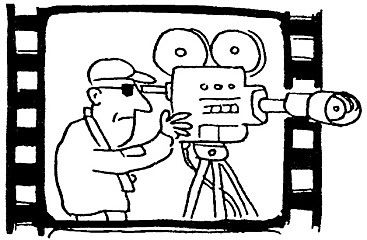The actual situation in the Kivu’s: no news bad news?
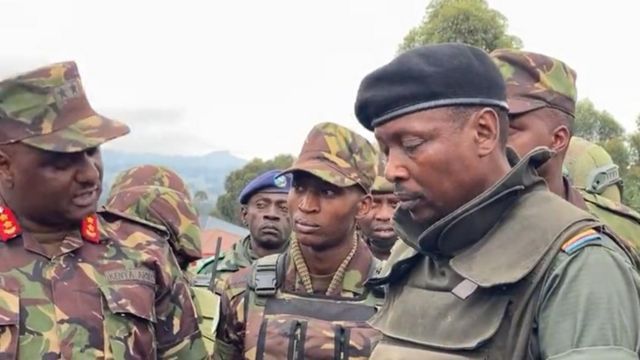
During the past couple of weeks, we received several phone calls and messages from researchers, journalists and diplomats with the question about what is currently going on in the Kivu’s. One month ago, everybody was convinced that a bigger clash between the M23 and the FARDC-FDLR-mercenary coalition seemed unavoidable. But it didn’t come to that, yet. Kinshasa was absorbed by the murder case of a collaborator of Moise Katumbi and later on the Congolese government was given the chance to distract the attention of the outside world with the organization of the “Games of the Francophone countries”. On the spot, in Masisi and in and around the zone that is under the control of the M23, the provocations of the FARDC seemed to become less violent and less often. And as a result of that, the M23 itself also became less talkative; the phone calls of those who had access to them were often not answered. They were apparently focusing on talks in Kampala with the Kenyan and the Ugandan authorities but everybody knew well in advance that Kinshasa would send its cat to Uganda. We decided to take a couple of steps back and to follow up on all this at a distance. We normally only report on events when we get access to them. This time around, we will break that rule but we’ll try to stick to the facts. The internet troll war on Twitter also calmed down. Even the twitter warriors are lacking arguments and lies to insult each other these days. The lull in verbal and military hostilities seems to be welcomed by the M23 as the government in Kinshasa and some observers see this as a sign of hope that will make negotiations possible in the future. But it would be very naïve to come to that conclusion yet.
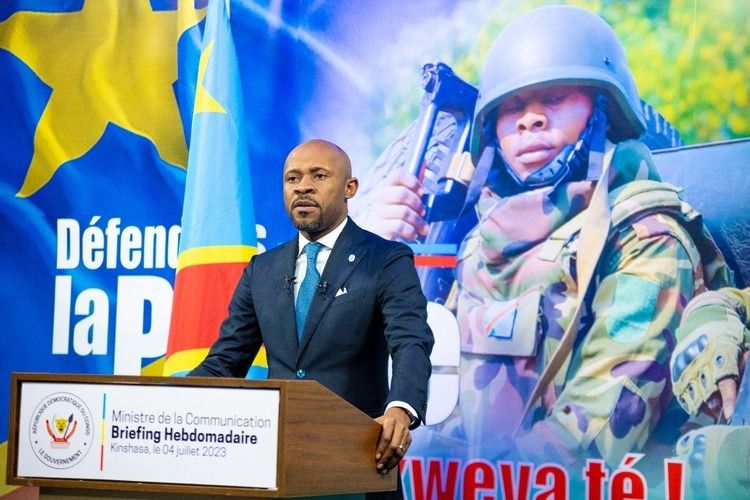
Kinshasa
There are several reasons why Kinshasa is tempering its own aggressive attitude towards the M23 and Rwanda. We’ll try to sum them up:
- The narrative of Kinshasa that the M23 and Rwanda were the only devils for all the misery and the violence in the DRC is becoming very hollow. The propaganda campaign set up by Tshisekedi’s media parrot Patrick Muyaya to boost this failed big time. The whole Kishishe story is a very good example of this: the international community took Muyaya’s accusations for granted, Human Rights Watch and the UN jumped on this wagon but this propaganda balloon exploded when the outside world was presented the real facts in the field.
- Tshisekedi’s attempts to lure the international community into an open fight with the M23 failed big time as well: MONUSCO refused despite the fact that Kinshasa mounted the local public opinion against them, the African Union sent its cat as well, the South-Africans and the Angolans promised to help him but pulled in their tails, the EAC presence became a nuisance for Kinshasa because the Kenyans and the Ugandans were confronted on the spot with the level of corruption and manipulation of the FARDC. They were able to see with their own eyes how the Kinshasa government relied more and more on groups such as the FDLR, Nyatura and other criminal organizations in the region to do its fighting. And they were able to see how the Burundian EAC force turned into another logistical base for the same Hutu extremists. Add to that, a couple of thousands of foreign mercenaries and this picture becomes clearer but it is not an acceptable one.
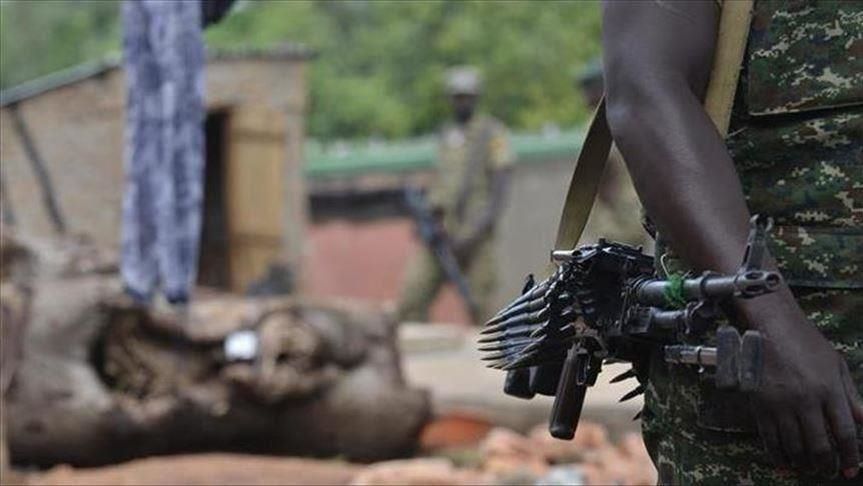
- Tshisekedi’s attempts to meddle into the affairs of the CENI to bend the rules to make it easier for him to win the elections did not go unnoticed as well. We cannot use the verb “re-win” because last time he did not win the elections either. He was allowed to become president after strict agreements were made with other political players but since then those rules were breeched one by one. It has become very difficult for him now to make new alliances. Even the Catholic Church, another power house in Congo, already expressed its disdain about all this.
- Connected to all this is the way Tshisekedi is trying to shut up those opposition groups: by throwing them in jail of bashing them up. Those who are bashed up too hard and die in this process are being shot a couple of bullets through their head. The president might have alibis to cover up his role in all this but it is a sure fact that these crimes are being committed by his own services and his own groupies. Those people mainly target collaborators of Tshisekedi’s biggest contender Moise Katumbi. There is not so much outcry about the fact that Katumbi’s right hand man Salomon was arrested. In Lubumbashi this man had a very bad and sleek reputation himself and he was looked at by many as one of the guys who was doing the dirtier work for his boss whose reputation as a friendly, generous and well-organized man could not be tarnished.
The whole corrupt chess game to influence the outcome of the elections at the end of this year has to be kept apart from the problems in the east of the country. And more and more people are beginning to see this now.
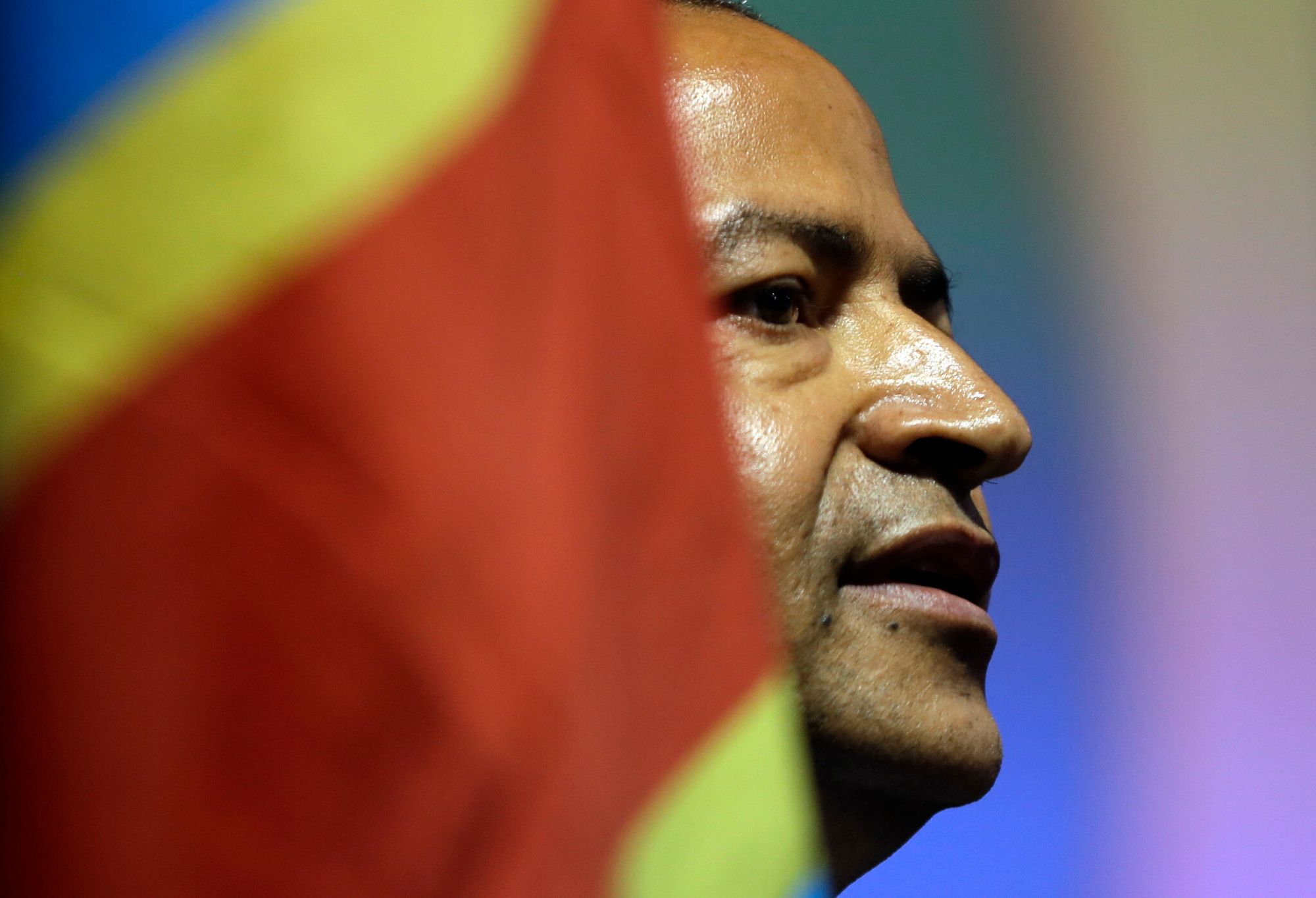
- The so called « Jeux de la Francophonie » were a welcome lightning rod for the likes of Patrick Muyaya to re-boost the reputation of the clique in power in Kinshasa and to divert the attention of the outside world. A couple of small hurdles were taken without too much problems: the boss of the Francophone country group, Louise Mushikwabo, was kept out of the loop and could not attend the games she financed herself with a couple of classic dombolo tricks (Louise used to be Kagame’s foreign minister before) and a couple of athletes were complaining about the food and the lack of water. Before that a couple of countries had already refused to send their athletes to Kinshasa for security reasons. But all these hurdles were covered with impressive musical concerts and fireworks. Stepping up its military provocations against the M23 in the east of the country and igniting a bigger war could have jeopardized to propaganda effect of these games.
- Last week another obstacle for Kinshasa presented itself in the Kivu’s where a number of civilian groups and local politicians started to contest the validity of the military siege in the province. Tshisekedi allowed the army to take over the civilian and military rulings in the province with the argument that this would make the war against the M23 and the other armed groups easier. But this turned out badly for him as well: the situation worsened instead! Evidence became clear that many generals pushed out the former local politicians of their monkey deals with groups such as the FDLR and the Nyatura. Before this military siege politicians such as Julien Paluku and Eugene Serafuli were having their fingers in this corrupt honey pot with the Hutu radicals. Nowadays there is not one general in the FARDC who does not want to be posted in the province for the obvious reason that they can make millions or thousands of dollars there in a short time with the same practices. If these fat bellied generals are whistled back by Kinshasa this could have an adverse effect on the outcome of a possible war against the M23.
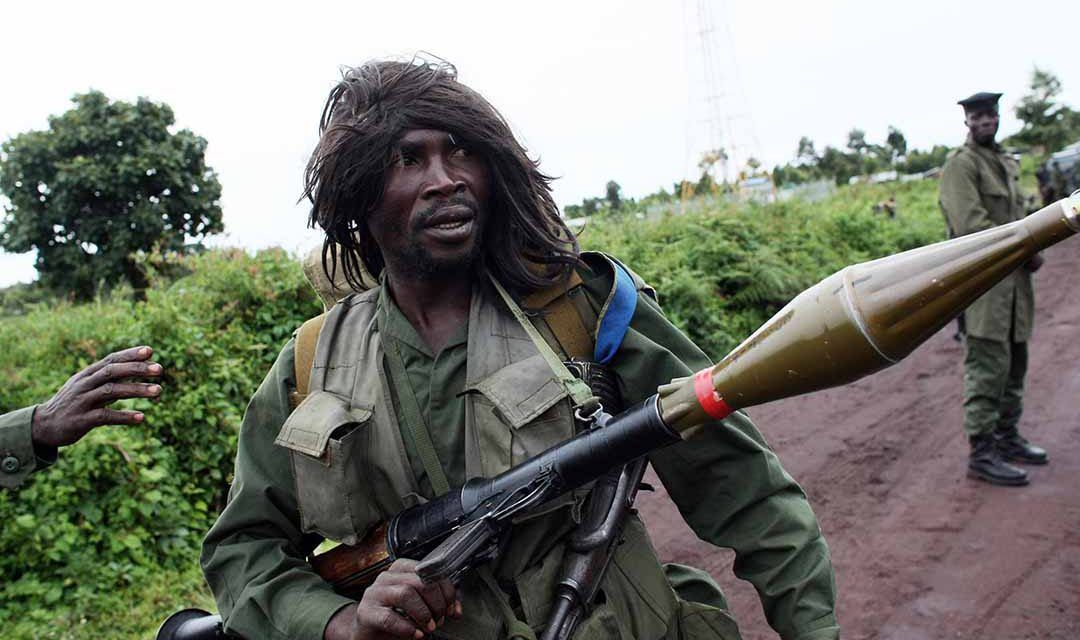
- Last but not least the mandate of the present EAC forces will end next month. These forces did have a tempering effect on the ongoing hostilities. Many observers think that their mandate will (once again) be prolonged. But the possibility remains always present that Kinshasa will make use of this hurdle to gain extra time.
- Another reason why Kinshasa might want to win extra time and to avoid a more open battle in Kinshasa is the fact that they are very scared that this war can turn things into an open nightmare for them. The more clearly headed FARDC officers know very well that a war against the M23 and Rwanda cannot be won militarily. The Sukhoi jets, the helicopters and the attack drones are therefore kept out of this theatre for the time being. The FARDC and the FDLR sent in a couple of wazalendo units to probe the positions of the M23 near Kilolirwe and Tongo but they were stopped and killed on the spot by the M23. This also shows clearly that the whole wazalendo set up does not work well: Kinshasa distributed tons of machine guns and ammunition to youngsters in the region. The idea behind this is to use them as a first wave in more massive attacks against the M23. But these untrained and undisciplined kids are no match for the much better disciplined and organized M23 soldiers who are always informed of these attacks before they take place and who can therefore easily repulse them. Hundreds of wazalendo will die in the scenario of a bigger war and the question remains if these youngsters will be willing to continue to fight once they start seeing their friends are dropping like flies on the battle field. Part of these wazalendoare under the control of the FDLR (Foca), others adhere to smaller Mayi Mayi groups or groups such as NDC-Renovee or ACPLS who have the reputation to be able to change sides more quickly.
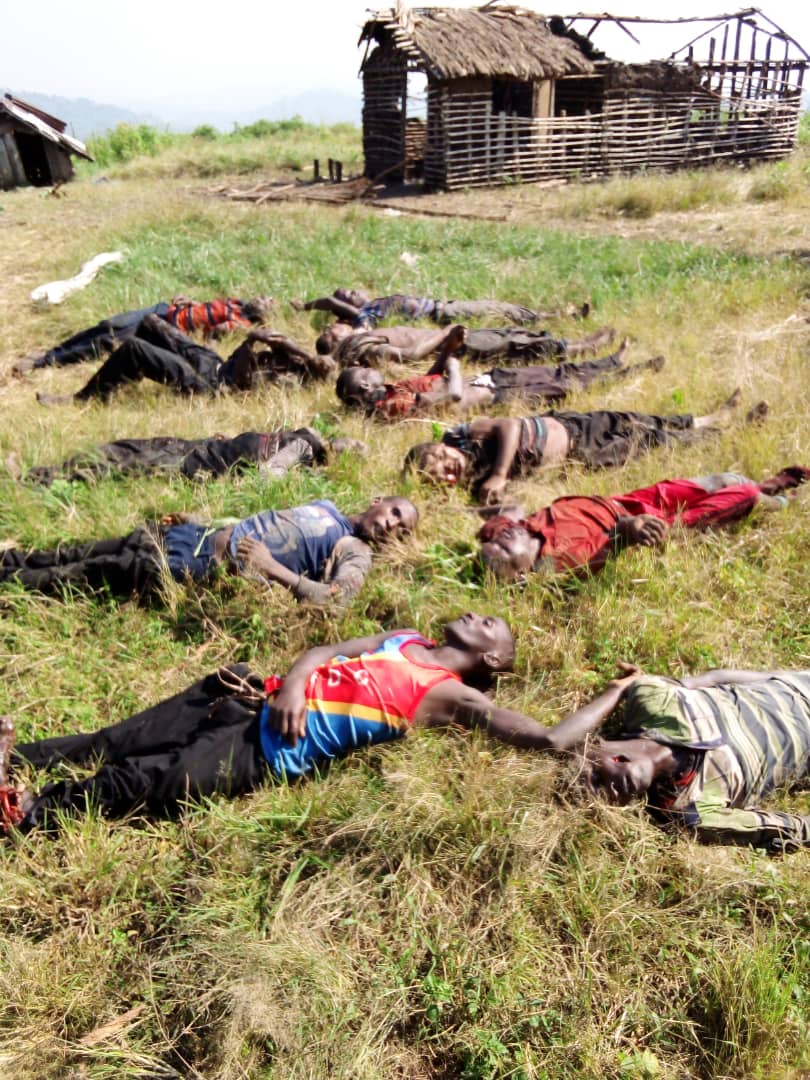
- Some of our sources in Kinshasa were even more lucid. A fairly neutral observer who knows the situation well told us this: “The more realistic leaders and officers in Kinshasa understand very well that the current government cannot turn back on its propaganda narrative that the Tutsi are the source of all evil in the country. Most of the Congolese swallowed that part of their fake argumentation and are now convinced of that. The M23 and the Tutsi community outside of the Kivu’s are now also convinced that negotiations with Kinshasa will not solve their problem. Some people in Kinshasa know very well that the M23 is only waiting for a decent pretext to kick the FARDC out of the region and to install a temporary administration that can allow all those Bagogwe refugees in Rwanda and in Uganda to return to their villages in the DRC. This process can take months and even a couple of years. The M23 will probably never accept a solution in which the refugees can return without being able themselves to protect them. Even when the M23 would be willing to pull out after all this is done; this could instigate a lot of other problems in the country. Kinshasa knows that the M23 will stand its ground and even push things beyond that.”
- Another observer mentioned that because of all this the current leadership in Kinshasa might not want a bigger war in the Kivu’s, slumber on towards the elections in their current modus, try to manipulate things like there are doing already now and allow Tshisekedi to become president again. In such a way that the international community will endorse him again. But he agrees with us that if one of the scenario’s we already mentioned would grow out of its controllable proportions Tshisekidi might still be willing to pull the emergency brake and start a bigger war against the M23 and against Rwanda. Inshallah!
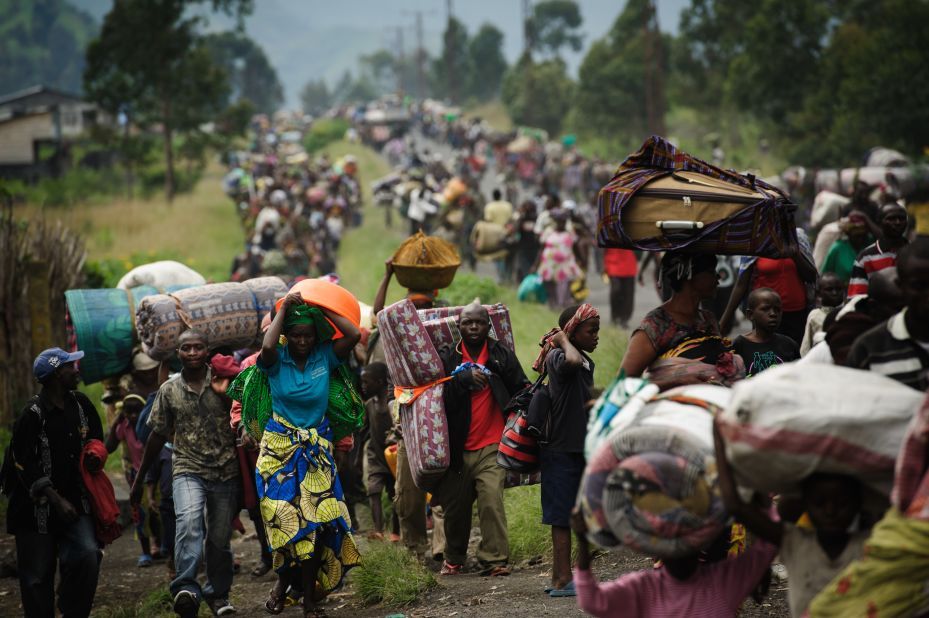
We might have forgotten a couple of elements but the main possible reasons are probably present.
M23
The M23 of today is not the same as the previous one that withdrew into Uganda in 2013 and it cannot be compared with Laurent Nkunda’s outfit before that. It is true though that many M23 officers served under Nkunda and Makenga before. And the new M23 is widely misunderstood by the outside world: this is one of their strong points but also one of their weak ones. The leadership of this organization is completely in hands of Sultani Makenga and a couple of trusted officers. The strength of his force rests on the shoulders of very dedicated and experienced officers and experienced sergeants who all gained their spurs during previous campaigns and sometimes also in other armies. Portraying this outfit as a Tutsi army would be a big mistake; the M23 contains mainly Congolese from outside the Kivu’s. Except from the youngsters who were recently recruited in refugee camps in Rwanda and in Uganda most of the fighters were born in the DRC. So what makes this M23 different from its predecessors?
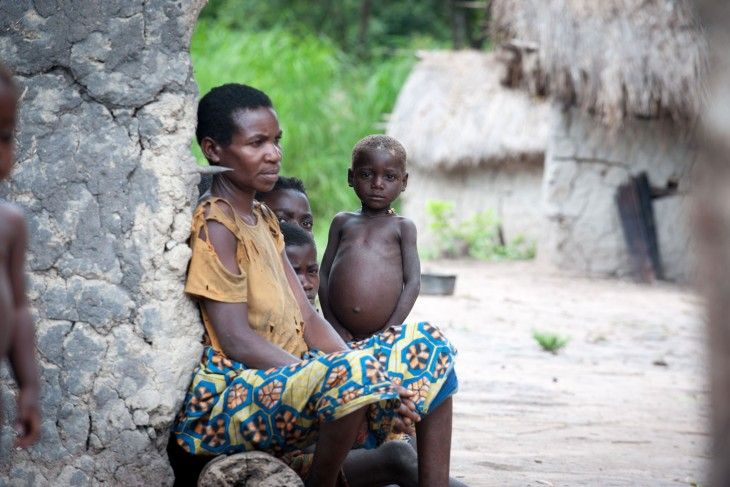
- As we explained already in previous papers the M23 of today lacks a well structured political wing and all their attention is focused on the military situation in the field. We were often told on the spot that in the beginning of this rebellion the M23 was still weak and they had to call all hands on deck to push back the FARDC and the FDLR. They were also frustrated that their so called political leaders had been unable to turn the promises that were made to them when they vacated their positions in 2013 into more solid agreements with the Kinshasa government. This probably strengthened their view that politics and diplomacy could not be trusted to obtain their goals. Another argument we heard several times is that during the previous rebellions several of their so called politicians had used their position to secure for themselves a career as a politician in Kinshasa. Some of them had even turned against them and had become opportunistic and corrupt predators themselves after a while. The whole Kabila family saga is a very good example of that. Others such as Bizima Karaha are finishing their careers at the bottom of a whisky bottle.
- This also makes the M23 quasi inaccessible for foreign media: to go there one needs to cross the border without a valid Congolese visa. The Congolese government also threatened journalists who defied those rules that they would be denied access to the country in the future. But the M23 was not specifically open minded towards foreign media either. They clearly missed the knowledge and the expertise to convince outsiders about the correctness of their cause. The situation we face today is that they also seem to welcome the lull in the media war so that they can better focus on their preparation of a bigger war.
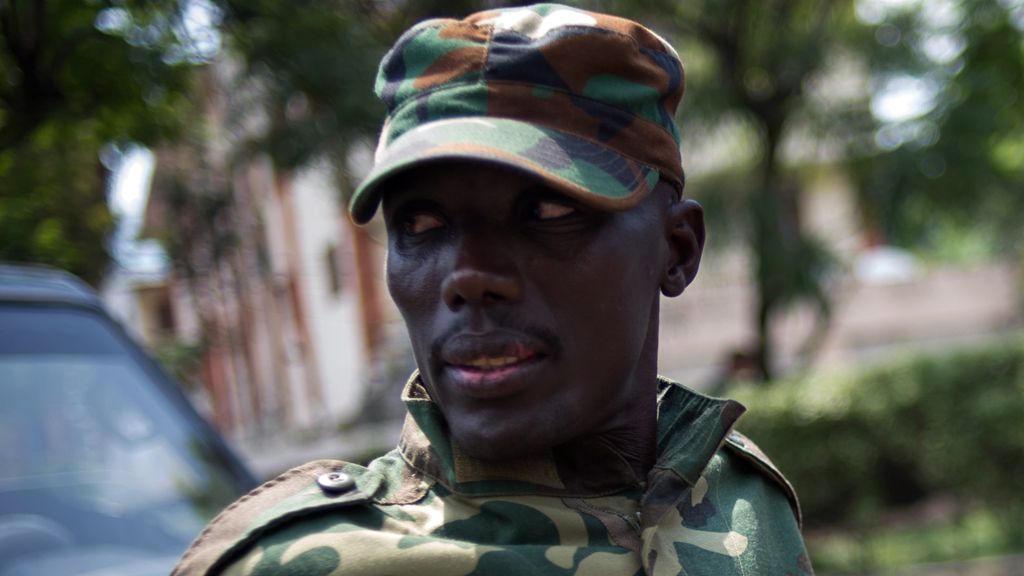
- The lack of a decent communication structure and a decent political program might be a strategic choice. But what we see and hear is that more and more people are starting to ask questions about the coming future. Trustworthiness can only grow via open and correct communication channels
- The M23 showed its goodwill and participated in all the negotiation talks they were invited to. It is not more than normal that they refused the results of the other negotiations in f.i. Angola, Burundi and or Nairobi in which the Congolese government refused to talk to them. They understand now that negotiations with Tshisekedi & co will never happen and will therefore not solve their problem. They also understand that the totally brainwashed Congolese public opinion will never allow them to let the thousands of Banyarwanda refugees return to their villages in the region. And this allows them to push diplomatic and political solutions from the table. But they might forget that a lot of people who are sympathetic to their cause are also looking for decent info.
- From what we hear from lower ranking M23 soldiers and collaborators is that the organization is also welcoming the lull in the fighting and focusing on setting up better defenses to counter a possible FARDC attack. The more time they’ll get to do that the better this might be for them and making bold statements in the press or at a negotiating table might change Kinshasa’s attitude.
Miscellaneous reasons and actors
The problems in West-Africa are certainly contributing to the fact that the problems in the RDC are receiving less attention now. The situation in Niger, Burkina-Faso and Mali is getting far more attention in the international media given the fact that the French are being kicked out and that radical Islamic groups are part of the problem. Combine this with the ongoing war in Ukraine and the problems between the Americans and the Chinese in Asia and Congo becomes a side-show. This lowers the stakes in a region where the bulk of the population is depending on the foreign media (RFI, France 24, BBC, etc) to be informed about the problems in their own countries. And most of the people we know who consult regularly Twitter to stay informed are telling us that they are becoming more and more frustrated by the dozens of daily posts of several nitwits who do not know the history of their own country, who thrive on rumors and fake news and who are insulting those who do not agree with them or who tell them that they are wrong.
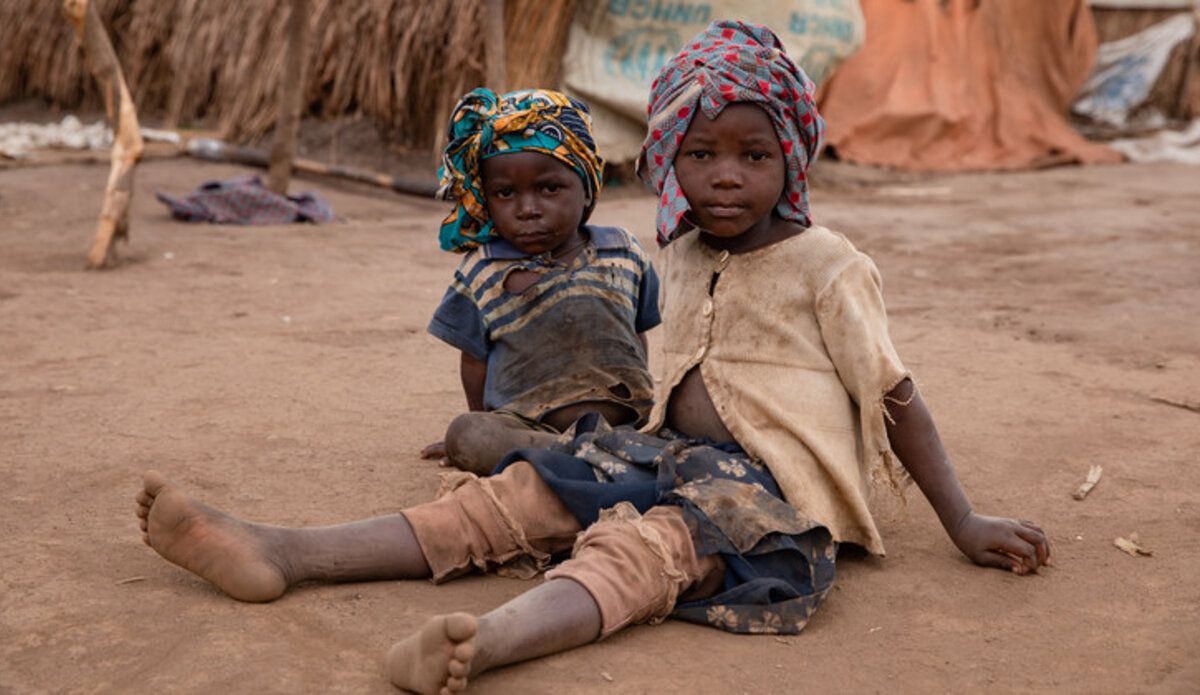
There are new signs now that a possible bigger war between the M23 and the Congolese government could also set South-Kivu aflame. We are investigating this issue: the relationship between the Banyamulenge and the other Tutsi clans has been troublesome for years but the blatant racism that was used in Kinshasa to tarnish the reputation of the Tutsi’s has brought them together again. There are bonding now to survive and this new bond, once put into practice, might change the geo-political structure of the African Great Lakes Region. The outside world has never well understood the internal dynamics between the different Tutsi clans. Many foreign journalists who claim to be specialists of this region are still calling the Tutsi’s of North-Kivu Banyamulenge, they do not understand the history and the relationship between Rwandan and Burundian Tutsi’s and these Congolese Banyamulenge- and Bagogwe clans. The level of understanding of all this in Kinshasa is even much lower and this might cost the Congolese government dearly in the near future.
It is very difficult not to become too cynical about all this. We’ll refrain from reporting about the Kivu’s now until the situation clears up and until we get access again. We received a lot of positive reactions on our previous posts but we can’t fill our info-bucket when the taps are closed. These people do not understand why we kept so quiet recently and why we didn’t go back to produce more stories. All those post were based on the info we gathered on the spot. The truth is that it was never as difficult as it is now to get access to information in the DRC and in the meanwhile the outside world is being fed lies and fake news to sustain this situation. While dozens of innocent people keep on dying because their problems are being neglected. We try to remain honest in what we produce.
Adeline Umutoni & Marc Hoogsteyns , Kivu Press Agency
